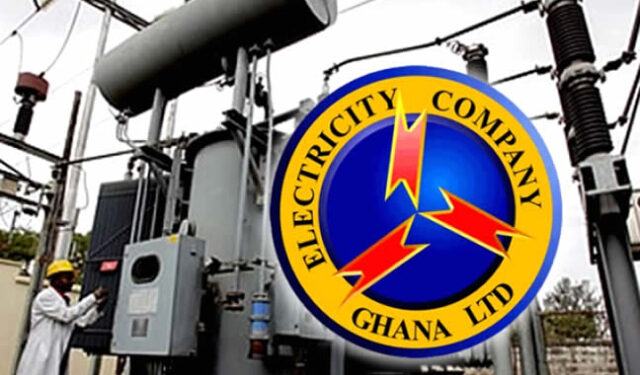The Untold Bites of the ECG
The ECG’s lack of consideration for the consequences of these actions is evident in the fluctuations of power voltage, swinging drastically from excessively high levels to alarmingly low ones, far below the recommended standard. These fluctuations not only endanger lives but also wreak havoc on electrical devices, often resulting in damage or, worse, sparking fire outbreaks.
- Advertisement -
Nii Addo voices a disheartening reality about the Electricity Company of Ghana (ECG), highlighting the toll it has taken on citizens due to the lack of accountability and the subsequent detrimental impacts on lives and properties. The recent devastating fire outbreaks at market centres as a stark example of the grave consequences arising from the ECG’s mismanagement, urging the public and the government to take action to address these systemic issues that have long been overlooked.
In a detailed analysis, Nii Addo sheds light on a disconcerting pattern of deliberate power interference, revealing a distressing practice of intentional power disruptions in various regions, which significantly favors the ECG’s interests. These disturbances, characterized by erratic power surges and abrupt interruptions, occur systematically throughout the month, causing severe inconveniences and posing risks to both electrical appliances and personal safety.
- Advertisement -
Examining specific areas such as Lartebiokorshie, Dansoman, Adentan, Kuntuse, Kasoa, Tarfo, and Gumani, Nii Addo uncovers a systematic interference strategy adopted by energy suppliers. This system, involving intentional disruptions, favors the ECG as a quick method to pull credits on meters, leading to destruction with no consequences for the culprits. The recurring power disruptions from the 10th to the 18th and then the 25th to the 29th of each month have become a distressing norm.
- Advertisement -
Nii Addo exposes the ECG’s questionable tactics to raise revenue, emphasizing the immediate acceptance of high-voltage power by gadgets, causing undue financial burden on users. The erratic high and low voltages not only exploit users financially but also pose safety hazards, leading to fire outbreaks and damaged electrical appliances. The installation of ECG meters, sometimes sparking fires due to incorrect placements, adds another layer of concern.
Additionally, installing meters without proper synchronization with local builders’ knowledge has led to mishaps, including fire incidents due to incorrect cable line placements. Lack of transparency in tariff deductions, inadequate communication regarding power disruptions, and a disregard for user inconvenience further compound the problems faced by consumers.
The persistent and intentional power disruptions by the Electricity Company of Ghana (ECG) pose significant economic challenges to both the informal sector and poor households in the country. The irregular power supply disrupts the daily operations of small businesses operating in the informal sector. These enterprises heavily rely on consistent power to sustain their operations, especially those in sectors like food services, electronics repair, and tailoring. The unpredictable power outages lead to increased production costs, hampering productivity and profitability. Inefficient energy supply also affects product quality, ultimately limiting these businesses’ capacity to compete and expand. Consequently, the informal sector, which plays a pivotal role in Ghana’s economy, faces a direct threat to its growth and sustainability.
The frequent power cuts impose a burden on households, particularly those with limited financial means. Inconsistent power supply disrupts daily routines, affecting various aspects of life, from cooking to children’s education. Households often resort to alternative, more expensive sources of energy such as generators or inverters, increasing their overall living costs. Moreover, the unreliability of power creates uncertainties around refrigeration and storage, leading to increased food wastage and financial losses for households already struggling to make ends meet. This economic strain further perpetuates the cycle of poverty, exacerbating the challenges faced by vulnerable households.
- Advertisement -
The frequent power interruptions hinder investment and job creation. Entrepreneurs and potential investors may be deterred from establishing businesses in an environment where the energy supply is inconsistent and unpredictable. This reluctance to invest in the country’s economy directly impacts job creation and economic growth. Moreover, existing businesses may find it challenging to attract investors or secure loans due to the increased risks associated with power-related disruptions. Consequently, the informal sector faces stagnation, and the potential for economic development is stifled, affecting the overall well-being of both businesses and households in Ghana. Addressing these challenges requires a holistic approach, involving regulatory bodies, policymakers, and the Electricity Company of Ghana to ensure a stable and reliable power supply system for sustained economic growth.
The ECG’s lack of consideration for the consequences of these actions is evident in the fluctuations of power voltage, swinging drastically from excessively high levels to alarmingly low ones, far below the recommended standard. These fluctuations not only endanger lives but also wreak havoc on electrical devices, often resulting in damage or, worse, sparking fire outbreaks.
Moreover, the recent infrastructure developments, while beneficial in expanding roads, have uncovered ECG’s shortsightedness in infrastructure planning, risking further power disruptions and financial losses for affected individuals and businesses.
Nii Addo’s recommendations are concrete and compelling. He urges the Public Utility Regulatory Commission (PURC) to mandate a compulsory meter inventory and advocates for improved monitoring systems and stringent measures against illegal connections by the ECG. Transparent billing practices, stringent guidelines for ECG agents, and accountability for street lighting maintenance funds are pivotal aspects that demand immediate attention.
In essence, Nii Addo’s call to action resonates with a demand for transparency, accountability, and consumer-centric measures from the Electricity Company of Ghana. The urgent need for these reforms is vital to safeguard citizens’ lives, properties, and economic stability. Seeing a problem, speaking up, and demanding change are crucial steps towards rectifying these systemic issues.
Nii Addo’s comprehensive analysis and recommendations stand as a beacon for citizens, policymakers, and regulatory bodies to foster a more responsible and responsive energy ecosystem in Ghana.
- Advertisement -


